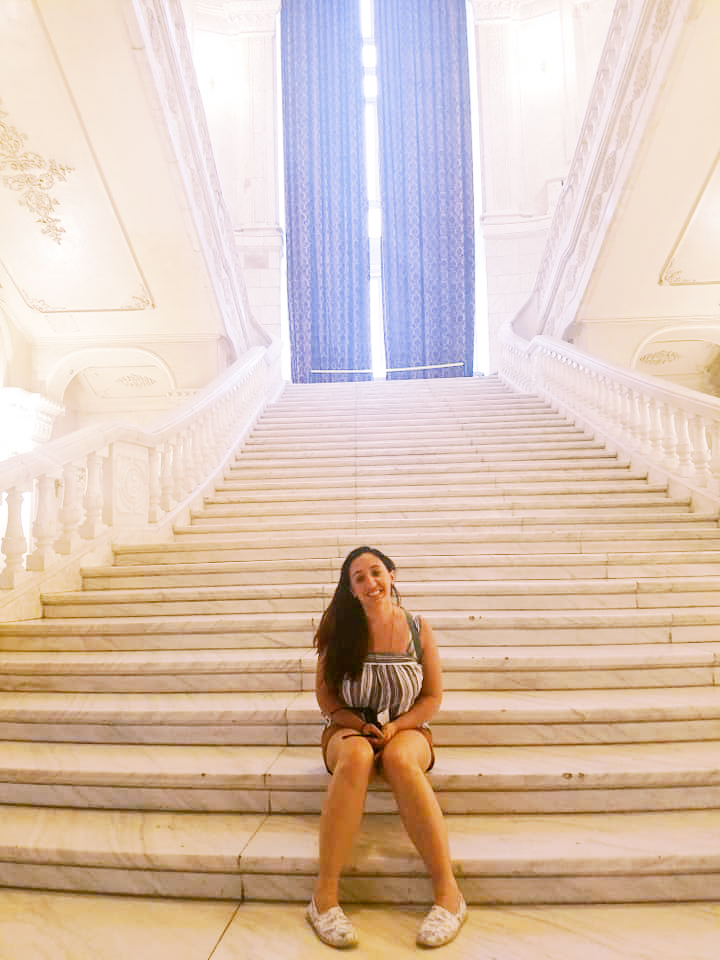
Less than 24 hours into a new city, and I’ve already ruffled feathers. That’s a new record even for me. The disgusted Romanian man was an employee at the Parliament building in Bucharest which gives tours to visitors. My husband and I wound up taking the tour at the Parliament building, but it’s not what we wanted to see. Our goal was to tour Ceausescu’s personal house.

What we really wanted to investigate, was the most controversial home in Romania – Ceausescu’S Mansion.
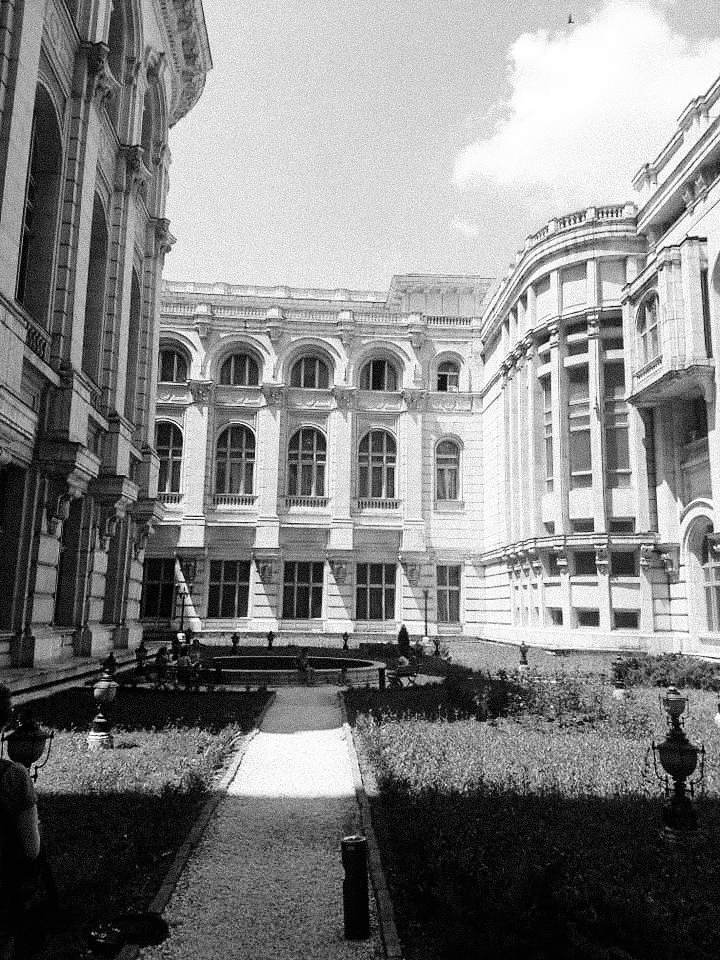
Who?
Nicolae Ceausescu was the former president of Romania. A staunch communist since youth, he forced many of those principles and ideals onto his citizens, but did not live by the same principles himself while in power. He was overthrown and executed during a revolution in 1989.
In the 1930s, Ceausescu spent time in prison, as his communist ideals were not yet tolerated in Romania. Around this time, he was taken under the wing of Gheorghe Gheorghiu-Dej, who went on to become the Communist leader of the country in the early 1950s. Ceausescu eventually escaped prison after the Soviets took over, and worked in many government positions under their rule. When Gheorghiu-Dej rose to power, Ceausescu served as his second in command and took over for him after his death, giving him the highest position of power within the country.
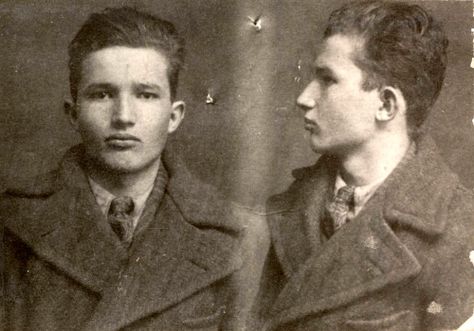
Why executed?
In short, Ceausescu was a megalomaniac who squandered the money of his people to support his own lavish lifestyle and build his mega-mansions while his citizens saw a dramatic lowering of living standards. Additionally, he oversaw a group of secret police (The Securitate) who censored speech and suppressed any would-be opposition to the communist leader.

Much like Pol Pot in Cambodia, Ceausescu heavily repressed dissidents (AKA anyone with a higher education bold enough to challenge Ceausescu). Penalties ranged from public ridicule to assassination. According to Balkan Insight, out of the population of 22 million in Romania, a total of 500,000 informants worked for The Securitate. The level of fear that citizens must have faced is unfathomable.
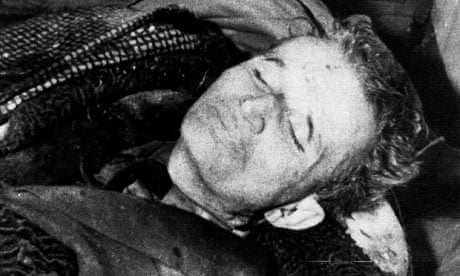
Courtesy: AP and The Guardian
Ceausescu outlawed abortions and birth control in order to increase the country’s population, as to him it fell short. As a result, many women resorted to more sinister means for birth control, which often led to death and maiming. Additionally, Ceausescu exported so much of the country’s agricultural bounty, in an attempt to pay off foreign debt, that there were dire shortages of food, medication, and fuel.
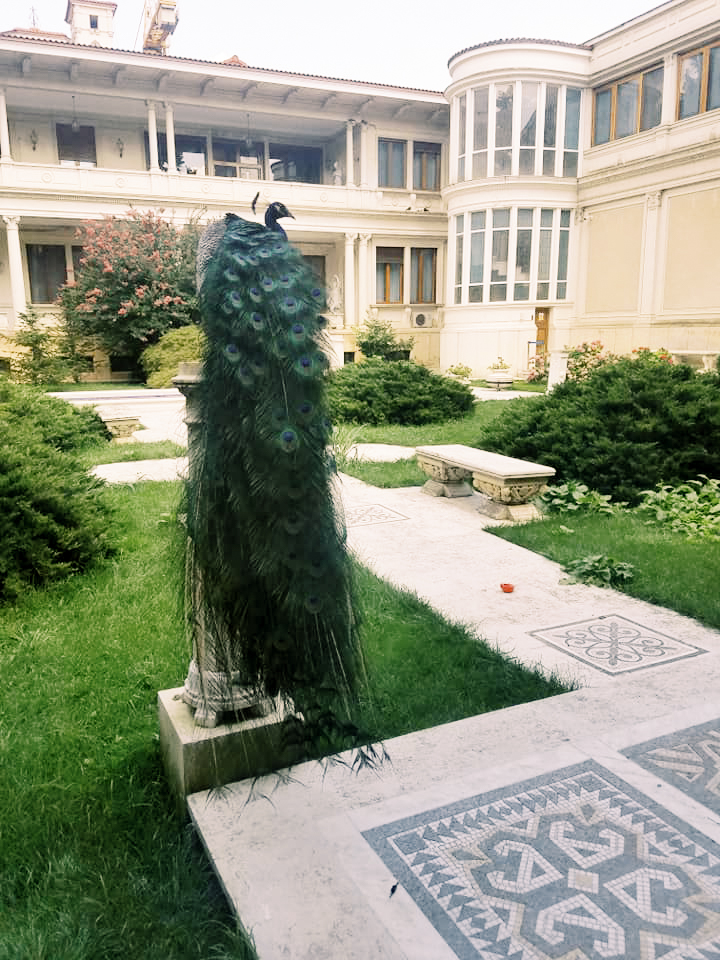
To many Romanians (it seemed), to see Ceausescu’s mansion, this man’s personal home – a living reminder of the mismanagement of their country which harmed so many – turned into a tour, a spectacle for visitors to marvel at – pours salt in a wound that has yet to heal, and runs very deep.
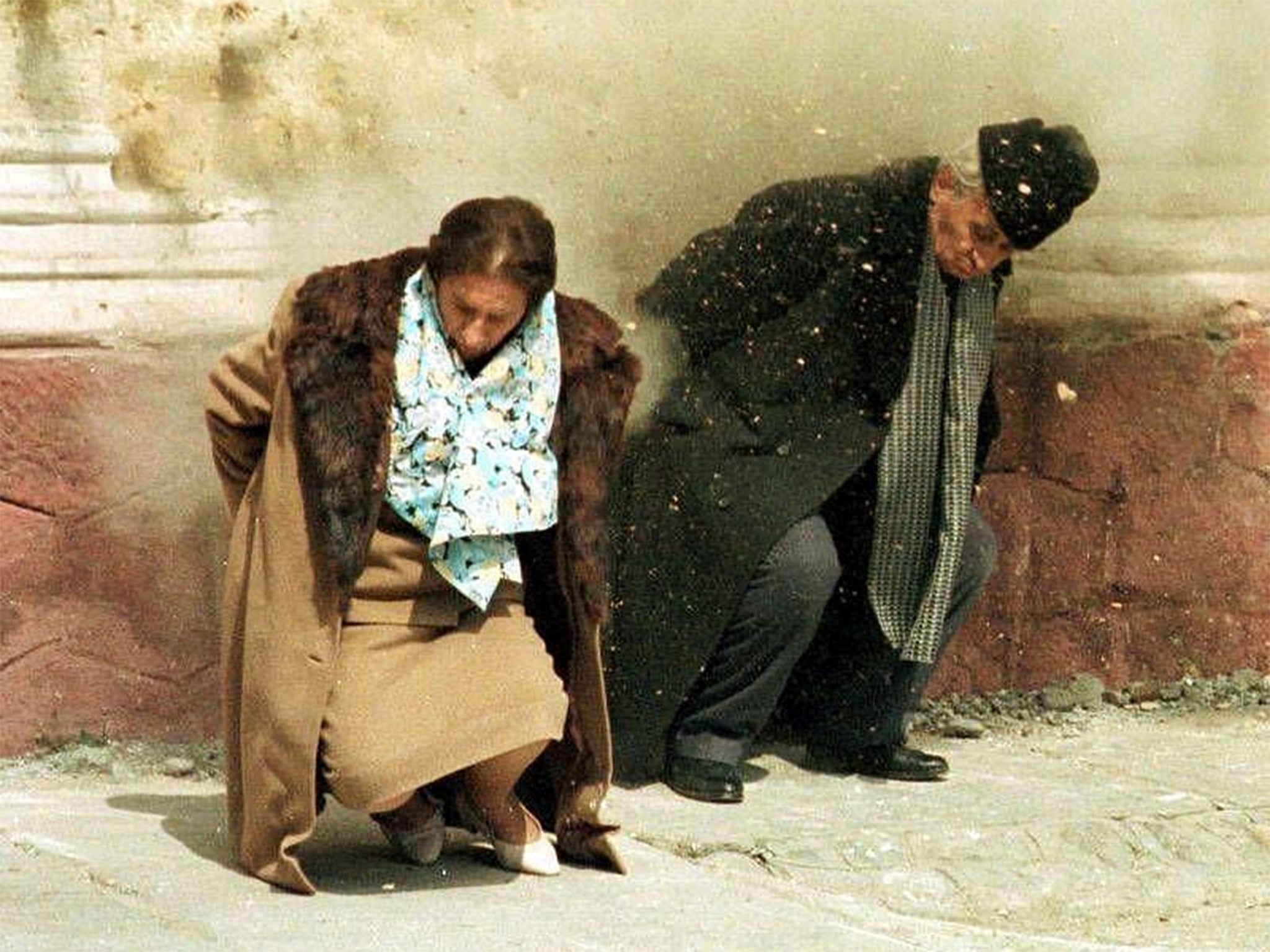
Ceausescu and his wife (Elena) executed by firing squad on Christmas Day 1989
In fact, and in my experience, it is very difficult to visit the mansion. A Google search does not yield as much information on the sight as one might expect. Don’t ask locals for directions or input – you’ll not be met favorably.
The mansion has only opened its doors and sold tickets to visitors since 2016.

Life in Romania under communist rule
Touring The Ceausescu House.
Despite the revolution which ended in the death of Ceausescu in 1989, the mansion remains mostly intact. Visitors can tour, not a recreation like in most former homes, but rather an authentic preservation of the private house, used by Nicolae Ceausescu, his wife (Elena), and their three children (Nicu, Zoia, and Valentin.)

There is legitimate criticism that the focus of the home is on the decor and does not focus heavily enough on the brutality of the Ceausescu regime, or the horror that he inflicted upon Romania.
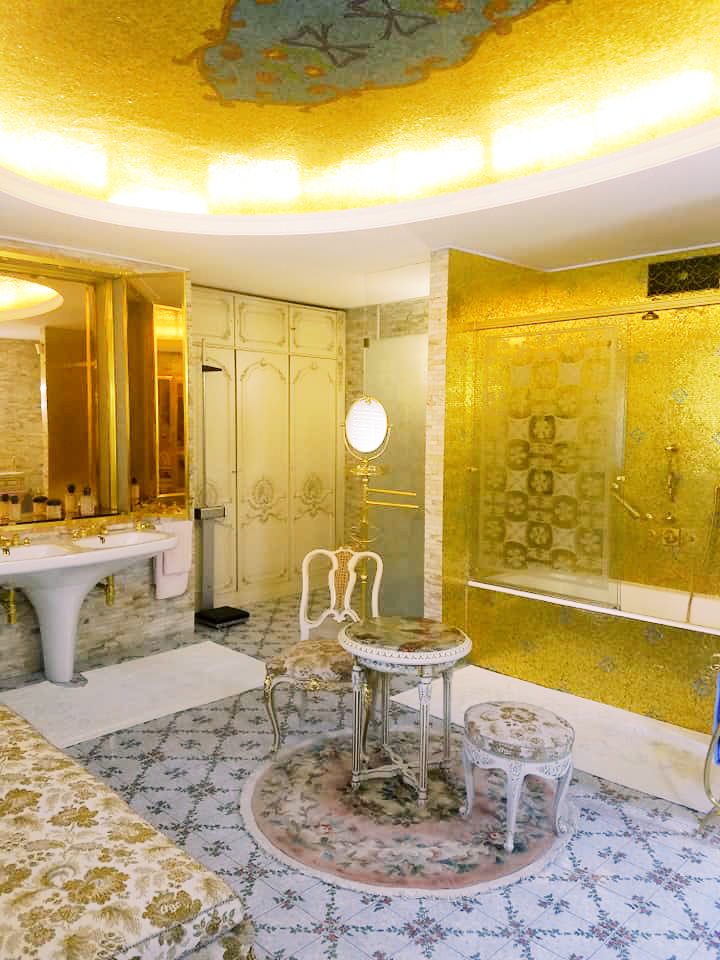
With that being said, looking at some of the decor in the residence (chosen by Elena) it’s difficult to NOT focus on it, or want to discuss it. It’s impossible for the elaborate interior design to not be a focal point of the tour. The style is…well…very…gaudy.
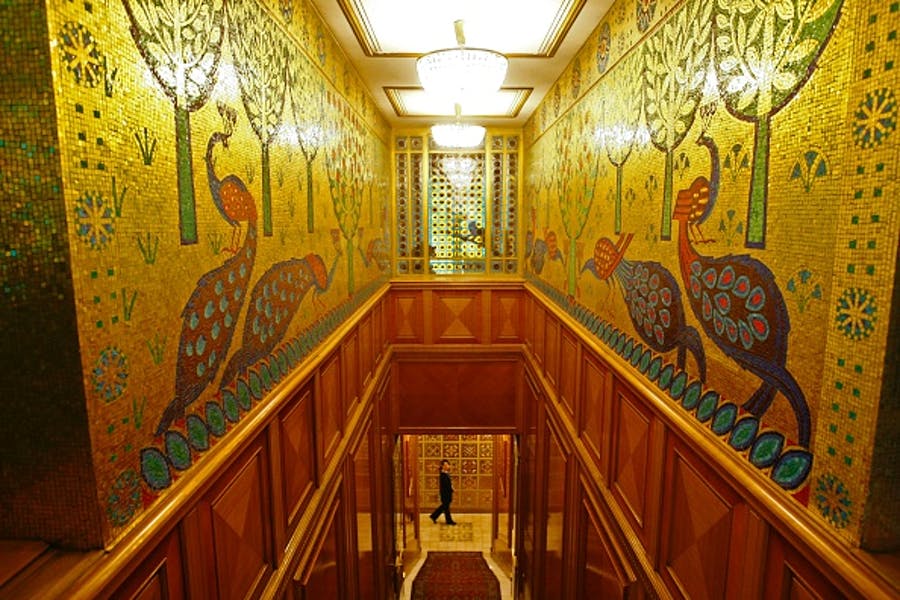
A Secret Fetish.
OK, it’s not a fetish, but it further elaborates Ceausescu’s hypocrisy as a leader. While much of the country watched dull programs and propaganda on television, Ceausescu kicked back in his private cinema to watch his favorite form of entertainment, Westerns!
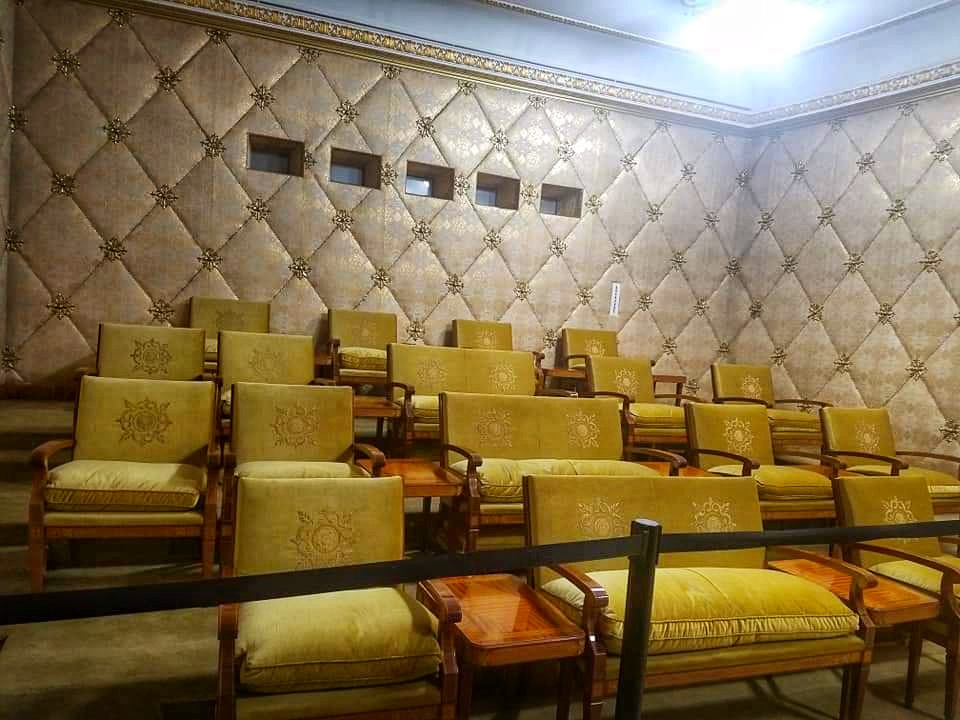
There is adamant disgust that while preaching about the values and ideals of communism and egalitarianism, Ceausescu lived in such an ostentatious manner. Meanwhile, the average Romanian lived in “shoe box apartments.”
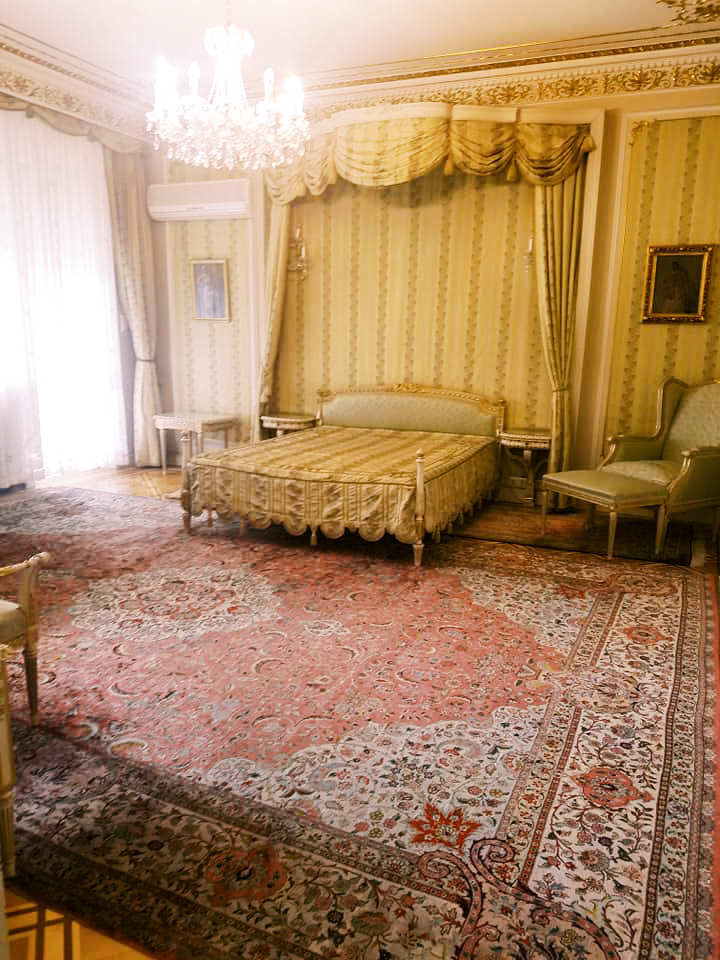
In an unintentional defense, the website proclaims that they want the average visitor to gain a sense of what Ceausescu and his family were like as private citizens. The museum wants visitors to see their lives outside of the head of state, their tastes, interests, and style.
The Jaw Dropper.
Ceausescu’s home becomes more and more luxuriant the further in you tour. For instance, who needs this many clothes? Ever? Especially when your citizens are starving?
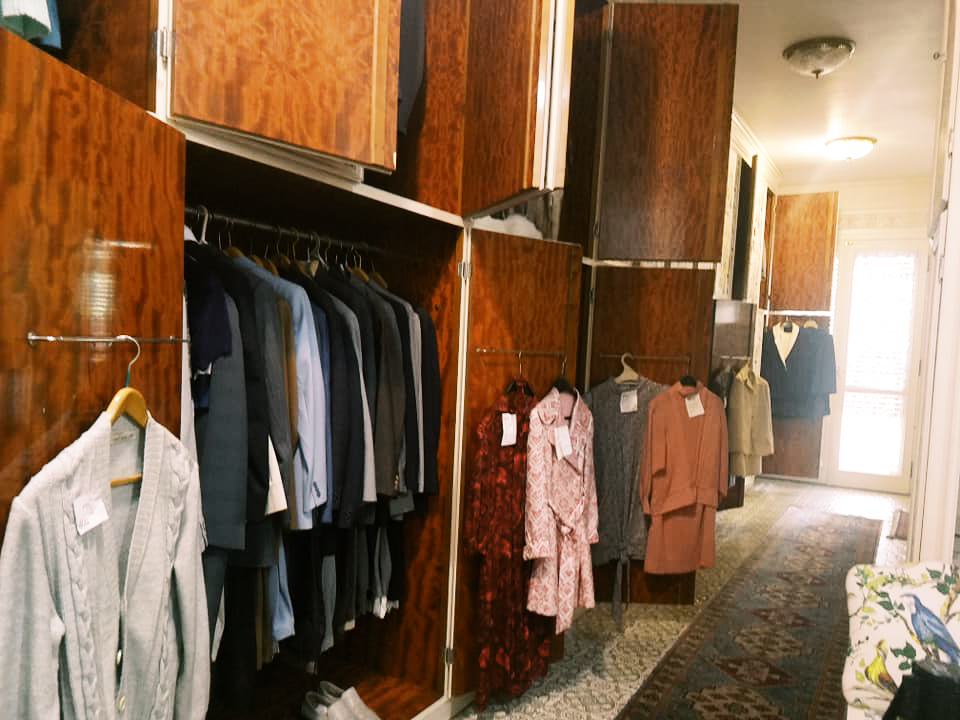
The Ceausescu’s built a miniature jungle, or really, atrium inside of their home for relaxation and entertaining guests.

At the end, guests have the opportunity to visit the indoor swimming pool, which has long been drained. This room is where the very justified anger that people feel when reflecting back on Ceausescu, comes to ahead. Imagine living in squalor, fear, and violent times, surviving the revolution, and storming Ceausescu’s mansion only to find this:
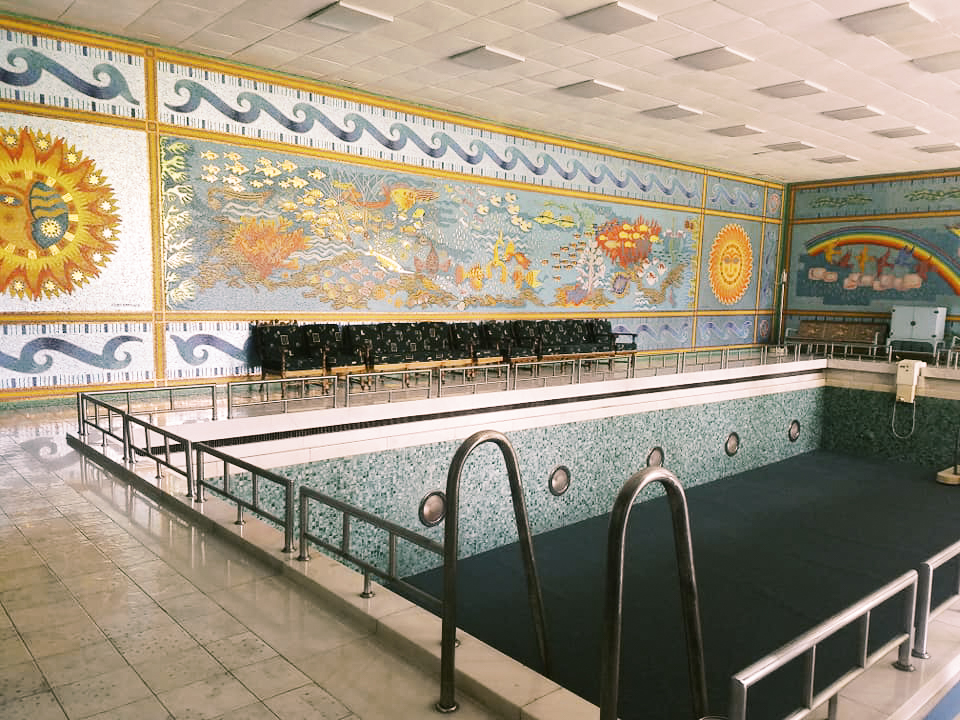
It’s appalling. It’s gut-wrenching and maddening. Because the capacity of avarice in this man was apparently limitless. How many lives were ruined to build and maintain this mansion? Too many.
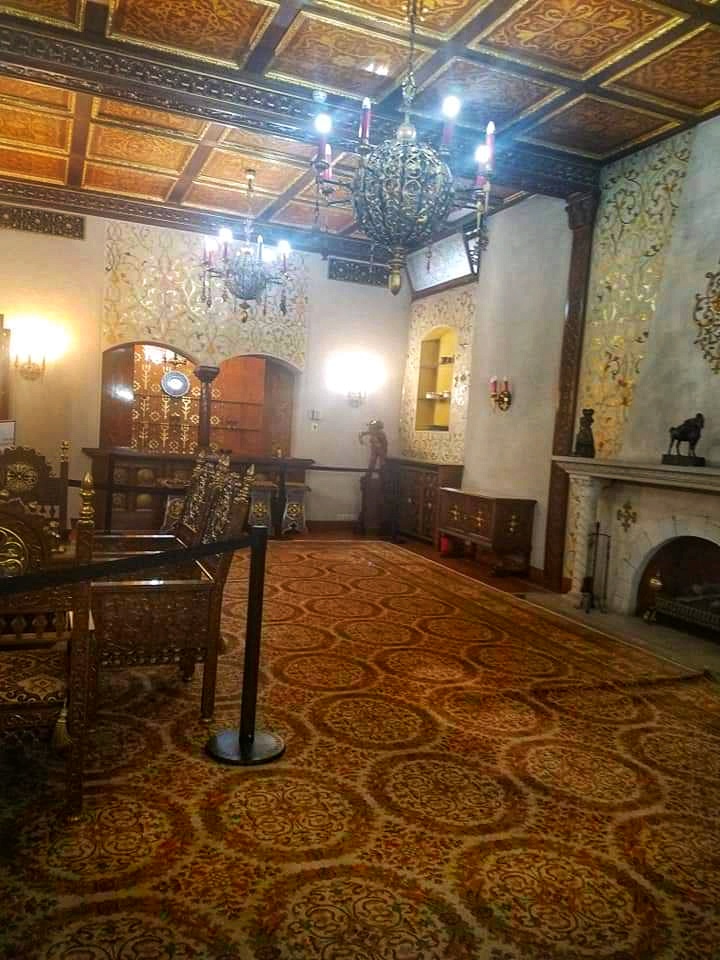
Ethical Consideration’s Touring The Ceausescu House.
I’ve been to the mansion, and I would visit again. I have a strong interest in history, and the opportunities to see a preserved living quarter of a former dictator are few and far between.
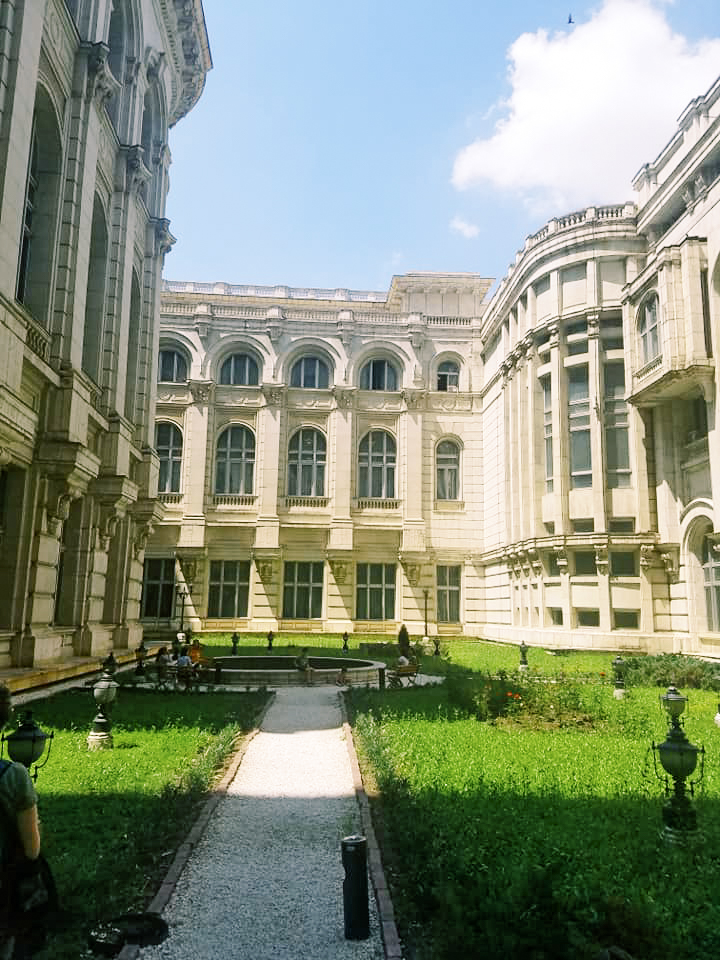
I feel I’ve been responsible in my intention for visiting and my reporting it back to my readers. If you decide to tour the Ceausescu House, consider your intention in doing so. If you want to buy tickets to do some model bullshit in the house, please don’t go. However, if it’s to gain a better understanding of Romania’s tumultuous history, then I think you should go for it.




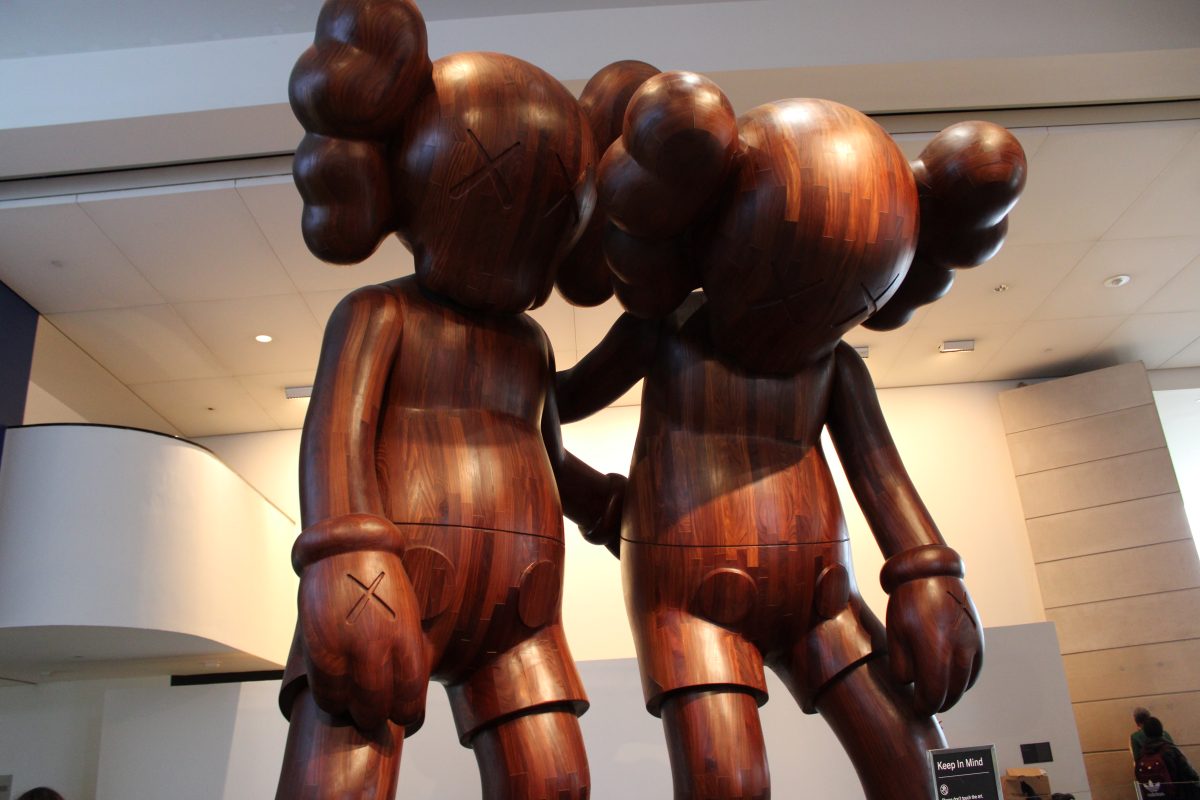
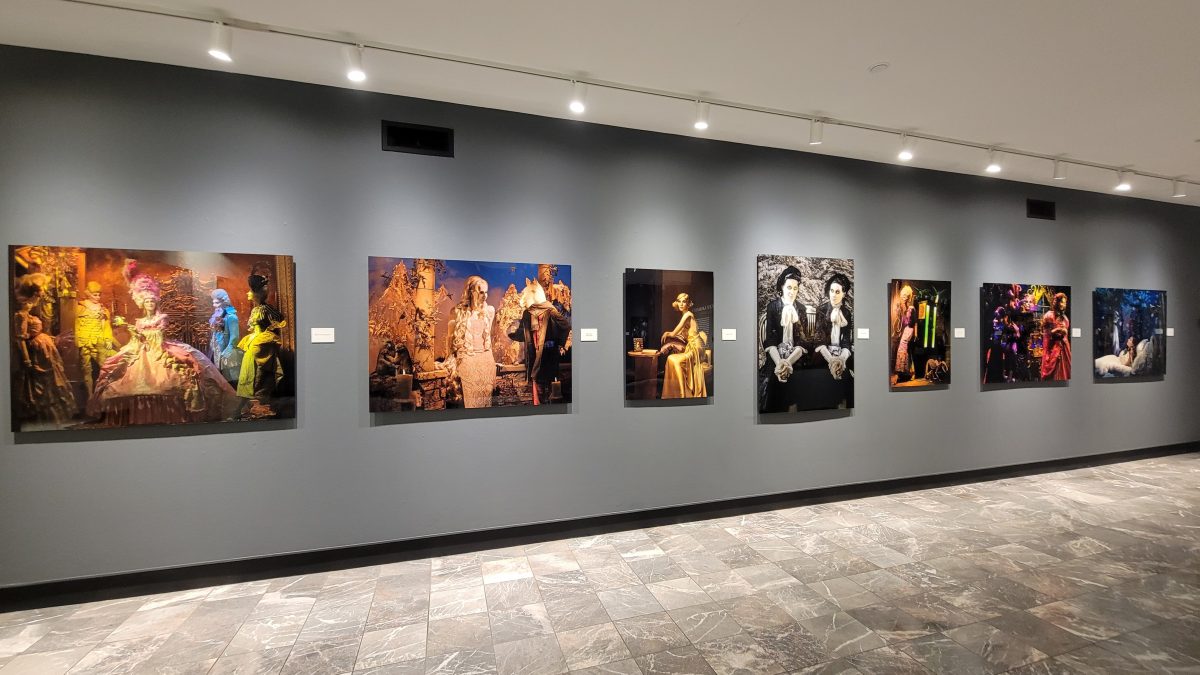
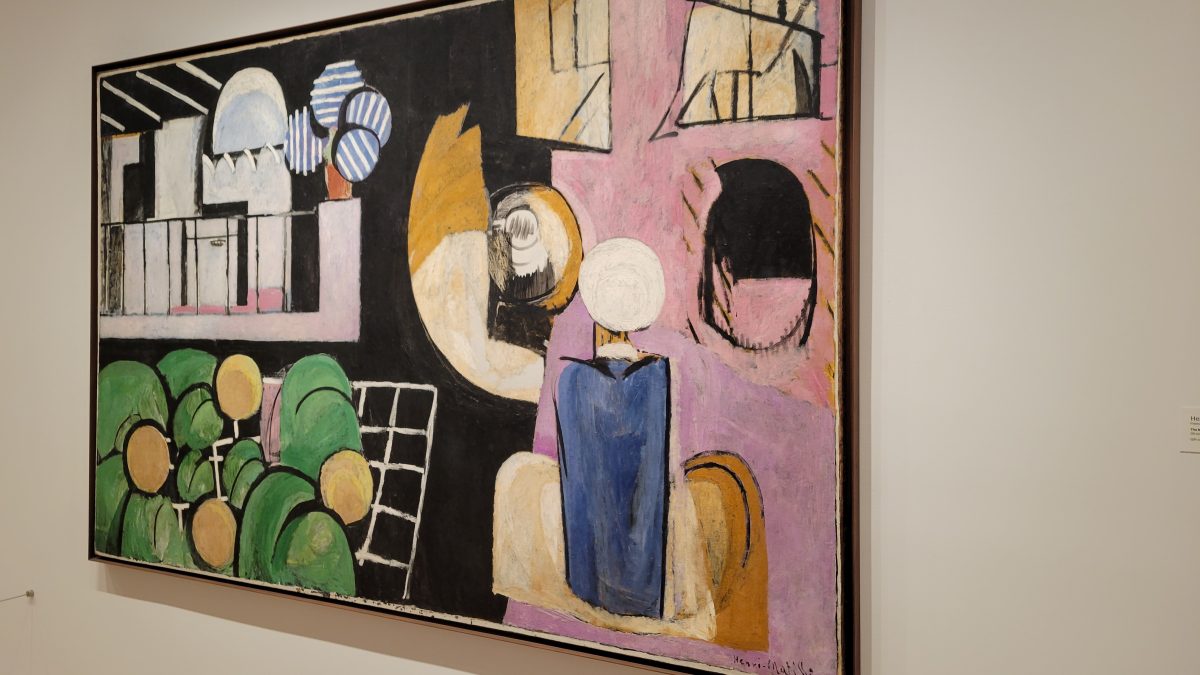
This is an interesting addition to the dark tourism trend. While much more mild than some experiences, I can see why this would be controversial to some. I think it\'s great to go into things like this with an mind open to learning. Thanks for sharing your experience!
Replyeven though its controversial, I would want to see it as well. Its part of the history. It is too bad that they didn\'t focus a little more on the brutality of the man.
Replywow definitely sounds like its a controversial (and beautiful) place! Its always so important to take into consideration the social and cultural implications when exploring places. Love how eye opening this post is!
Replywow, this is brutal. It was sad for the Romanian citizens to know that this extravagant place existed while they were struggling. Hopefully, that time is way behind them and perhaps we can all learn from this terrible history. Is it really difficult for tourists to find out about this place as you have said?
ReplyWhile it may be controversial, I think opportunities lie in educating people about this man through his house. I learned a lot just from reading your post - so imagine what a place like this could do for visitors. I hate to say, but Romania\'s past isn\'t something we learn about in America. So while the pretty decor may attract visitors, it\'s what they learn inside that is important. Great post!
ReplyWhile it is horrible what happened to the people of Romania, it is important to learn about the past. Some do not fully grasp it until it is facing them head on. So it would be a good place to visit so you can get a full contrast of the life he was living compared to his citizens.
ReplyWow! This is such a terrible history. I think it does open people\'s eyes so that history does not repeat itself.
Reply